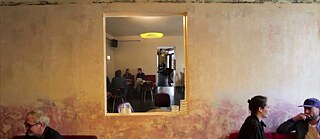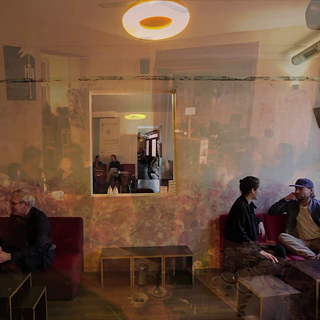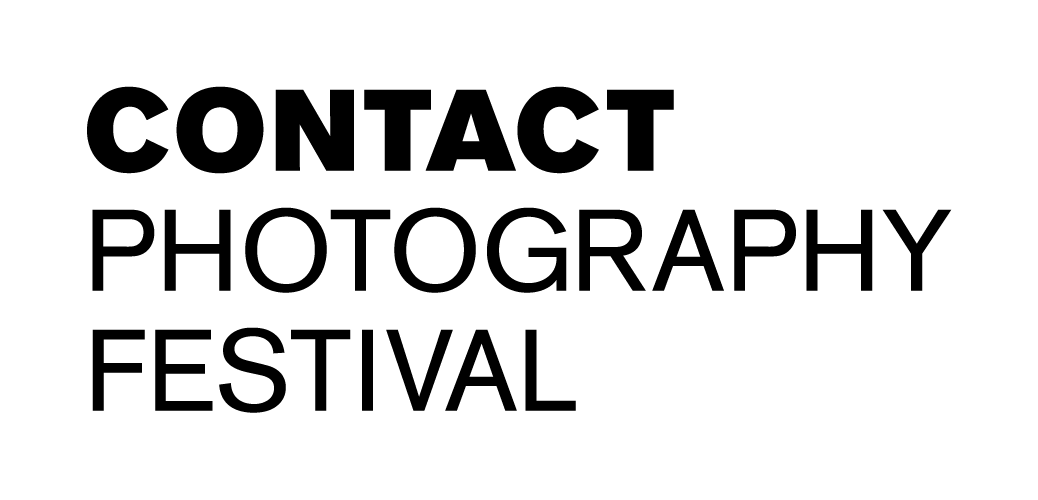Still Film: Photography in Motion
Photo exhibition| Core exhibition CONTACT Photography Festival 2025
-
Goethe-Institut Toronto , Toronto
- Price Free

Presented by the Goethe-Institut
The Goethe-Institut is collaborating with unique Berlin artist film project Videoart at Midnight to look at the creative manifestations and manipulations of photography in film and video. Pınar Öğrenci uses archival material to investigate the history and present of Turkish and Kurdish migrants in German coal-mining areas. Helena Uambembe performs her shadow image in front of an oversized 1975 photo portraying the leaders of South Africa’s factious opposition movements. Andreas Koch leads us in and out of a skilful mirrored montage of photographs from his favourite bar amidst a cacophonous voice-over.
Free public programs at the Goethe Space:
Opening Event: May 1, 2025,
5.30-7pm
Opening reception with Berlin guest curator Olaf Stüber, Videoart at Midnight
7-8.30pm
"Still Film: Photography in artist film and video”, a show & tell conversation with curators Olaf Stüber & Jutta Brendemühl
More events to be announced!
The presented works:
Pınar Öğrenci, Glück auf in Deutschland (Good Luck in Germany), 2024, video, 44‘, b/w and colour, sound
Glück auf is a greeting used in the Ruhr region, the old centre of German coal mining, to wish miners luck so that they return from the pit profitably and safely. Pınar Öğrenci’s video work includes images from private and public archives. Using photographs taken in the region between 1950 and 1987, Pınar Öğrenci examines the politics of the body and architecture in industry and the transformation of mining buildings, the construction of a German national miners' identity, the invisible labour and struggles of women, the lack of representation of migrant workers, and racist practices in the health and insurance system.
Öğrenci montages black-and-white photographs into a documentary that introduces the viewer to industry and life in the post-war Ruhr The artist's offscreen voice guides us through the film; she opens with a lament from the Turkish poem Fazıl Hüsnü Dağlarca, comments on the images and interviews experts who shed light on the context in which the stories of the guest workers take place. Öğrenci's film unfolds a piece of German and German-Turkish history that has hardly been told before.
The Kurdish-German documenta 15 artist deftly drops the past into our laps, making it clear that we need to care for it if we want to live differently today and tomorrow. Though Öğrenci’s art is pointed and unsettling in its critique, her poetic forms always also open up their themes to human understanding, to an acknowledgment of the value and dignity of diminished lives.
Helena Uambembe, Can you hear me, 2018, 1’13”, b/w, no sound
Uambembe’s practice is personal and particular. As an interdisciplinary artist, she uses performance, photography and printmaking to recreate and reposition the history of the 32 Battalion, the infantry Battalion of the South African Army Founded in 1975. She draws on her own history rooted in the small town of Pomfret, where she was born (to Angolan parents) and where her father was recruited into the 32 Battalion. Once the home of the Battalion, the town has glided into a ghost town as it is slowly becoming deserted and forgotten. In an attempt to understand her family history within the bigger context of the country’s history, Uambembe wrestles with painful memories, absences, and erasures.
In Can you hear me, she uses archival imagery of Angolan leaders Jonas Savimbi, Agostinho Neto and Holden Roberto, inserting her shadow against the backdrop of the three leaders in what becomes an agonising image representing millions of Angolans who have suffered at the hands of war. Uambembe’s work is a piecing together of fragmented and fractured histories resulting in images with sharp edges, hollows, and a stark sense of melancholy. The 32 Battalion becomes a master narrative the artist uses to investigate and explore the past. Fragmented pieces become a way of mending and compressing time while weaving together ideas around home and identity.
Andreas Koch, Lass uns Freunde bleiben (Let’s Stay Friends), 2015, 8‘05“, colour, sound
‘Lass uns Freunde bleiben’ refers to the location as the main protagonist, namely the venue of the same name on the corner of Chorinerstrasse and Zionskirchstrasse in Berlin-Mitte. ‘Lass uns Freunde bleiben’ is a café by day and a bar by night and is popular with artists, neighbours and tourists alike. The performers --the guests of the bar--, soliloquize laconically about topics such as aging or the flood of images and art (a cacophony gathered in an accompanying booklet). We see a tracking shot through the rooms of the bar, through the window and mirror, in an endless zoom, back to the bar reflected in a window on the other side of the street at night.
A significant part of Koch’s artistic work consists of animated films, which are actually walk-in photographs, or rather three-dimensional spatial structures collaged from film and photographic material.
The video works will be accompanied and contextualised by additional photographs, texts, interviews, and a reading room.
Follow, tag & talk to us on Instagram @goetheinstitut_toronto #GoetheTO #StillFilm & @videoartatmightnight & @vtape.
Part of the Goethe focus “Still Moving” on the tension between rest and motion, safeguarding and change-making, tradition and innovation.
Künstler*innen & Kurator*innen
-
Andreas Koch was born in Stuttgart in 1970. He studied at the Berlin University of the Arts under Dieter Appelt and Christiane Möbus and graduated with a master’s degree. In Berlin's burgeoning and vibrant art scene, he ran the Koch and Kesslau Gallery together with Sybille Kesslau from 1996-2004. In 2020 he received the art prize of the city of Nordhorn. Andreas Koch is a visual artist as well as the editor of the art critic magazine von hundert, a book designer and now also the publisher of the small art book publishing house permanent.
-
Pınar Öğrenci was born in Van, Turkey, in 1973 and lives in Berlin. Öğrenci’s work has been exhibited at documenta fifteen Kassel, MAXXI Museum, Rome, 12th Gwangju Biennial, 6th Athens Biennial, the Istanbul off-site project of Sharjah Biennial13, Kunsthalle Bremen, SALT Galata İstanbul and others. She had solo exhibitions at Frac Bretagne Rennes, Berlinische Galerie, Hundertwasser Museum Kunst Haus Wien, Tensta Konsthall Stockholm, Depo İstanbul. She was awarded the Villa Romana Prize 2022. 2024/25 exhibitions include Disobedience Archive at Venice Biennale, Biennale Matter Art Prague, Harvard Art Museum and Museum of Arts and Crafts Hamburg.
-
Helena Uambembe was born in Pomfret, South Africa, in 1994 and lives in Berlin. She grew up in a family history shaped by the Angolan civil war: In 1975 her parents sought refuge in the troubled community of Pomfret alongside other families of the 32nd Battalion, a special-forces unit within the South African Defence Force made up largely of Black Angolan men. Uambembe, a member of the Kutala Chopeto collective, explores narratives surrounding history and place. She has been awarded the DAAD Scholarship Berlin, Baloise Art Prize Basel, David Koloane Award Johannesburg and Germany’s ars viva Prize 2025.
-
Olaf Stüber is a curator of contemporary art with a focus on time-based media and is best known for the internationally renowned artist’s cinema project Videoart at Midnight, which he founded in Berlin in 2008 together with Ivo Wessel and has directed and curated since. In addition, Stüber publishes a video art edition, lectures internationally on artist film and video art in the context of the art market, curates programs and exhibitions for institutions, fairs and festivals, consults for institutional and private collections and has been a member of numerous juries. He has been living in Berlin since 1993.
-
Jutta Brendemühl is an arts programmer, advisor and writer with a focus on international cultural relations and encounters. She is the Program Curator at the Goethe-Institut Toronto and serves on the boards of UKAI Projects and the European Union Film Festival Toronto. Jutta is a North American Cultural Diplomacy Initiative Collaborator, a fellow of the Toronto Arts Council/Banff Centre Toronto Cultural Leaders Lab, an advisor on the DOK Exchange XR Showcase, as well as a founding member of the Toronto Global Impact Network and SALOON, an international community of women-identifying art professionals.
Location
Goethe-Institut Canada Inc.
100 University Ave, North Tower, 2nd Floor
Toronto M5J 1V6
Kanada
Exhibition Hours: Wed, Thu, Fri 11am to 5pm

